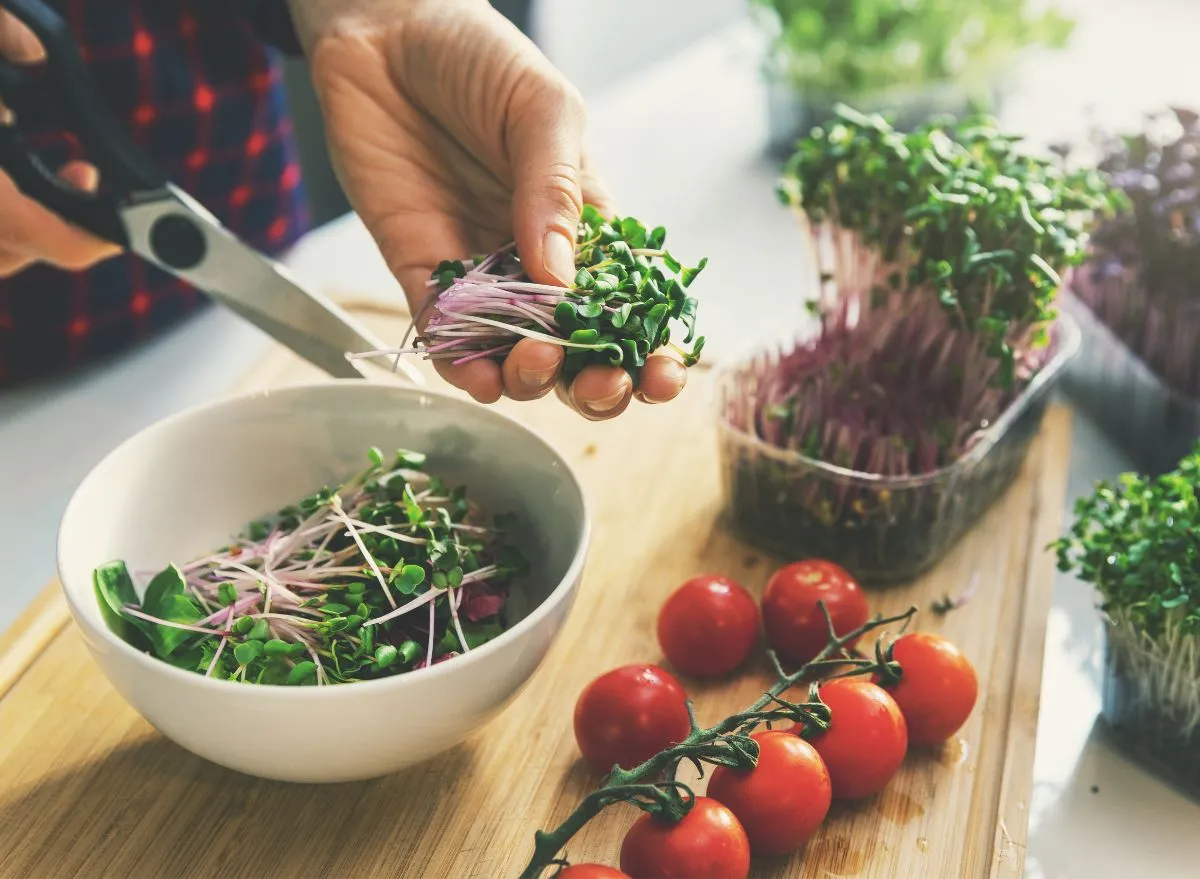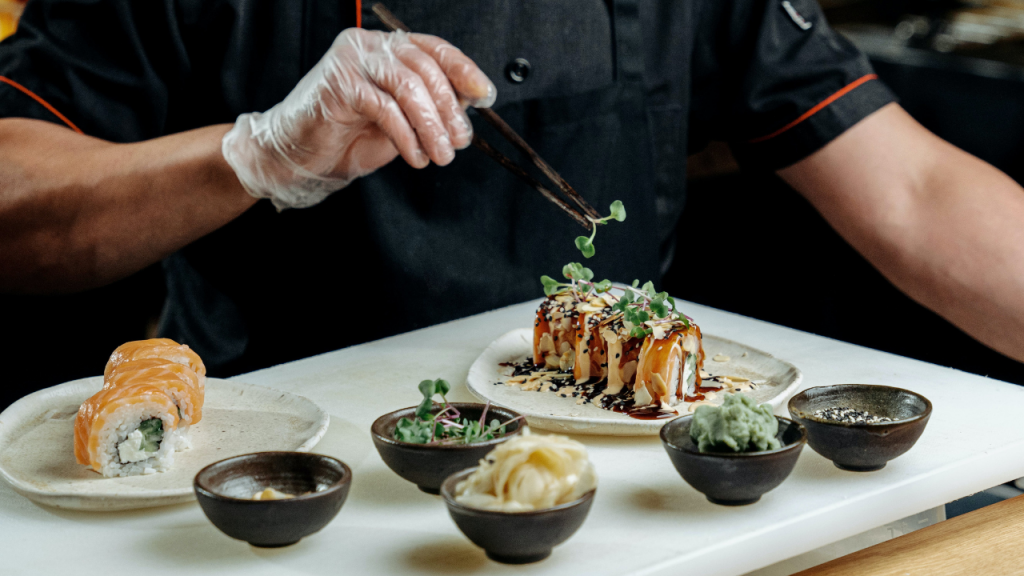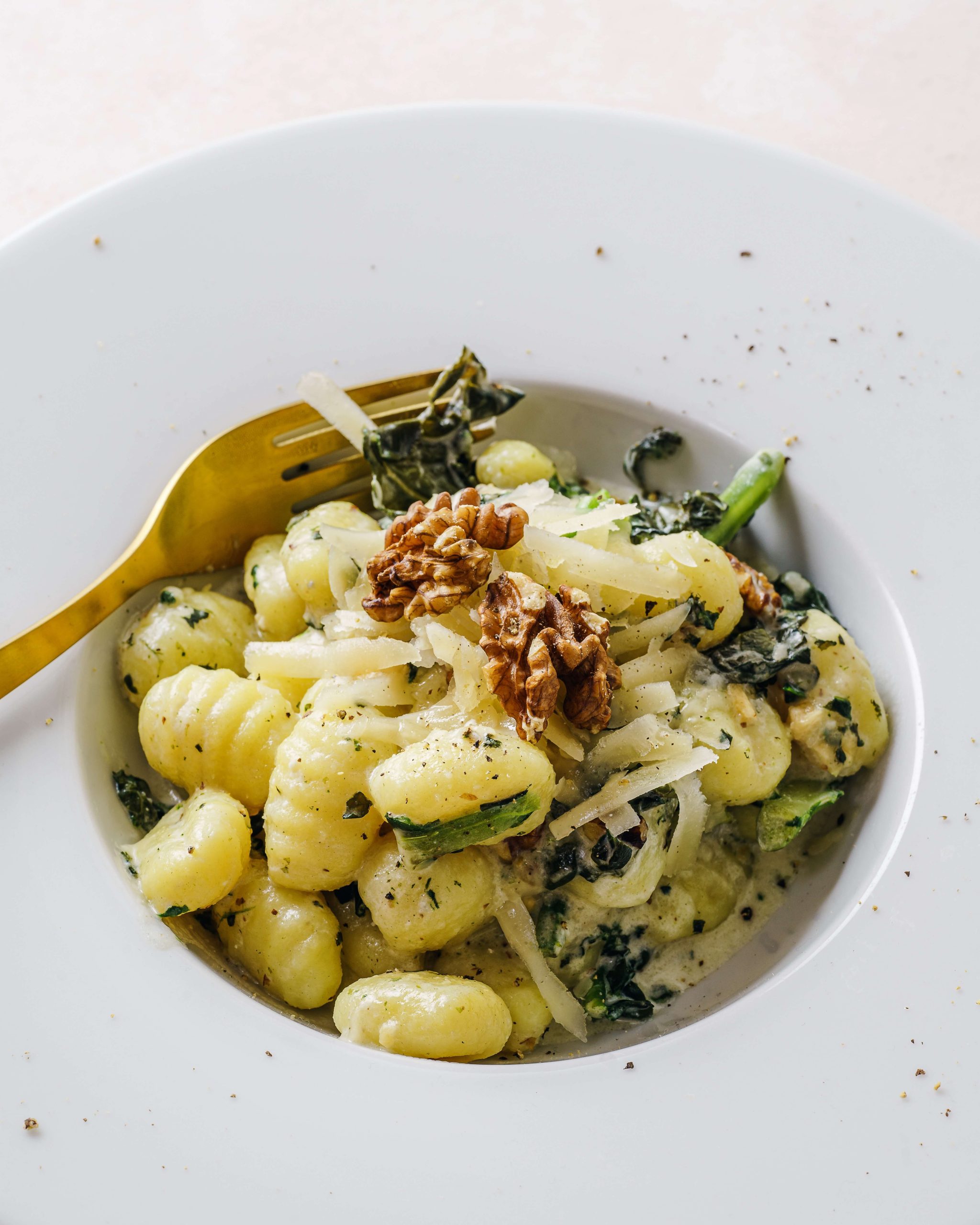Garnishing is the finishing touch that transforms a simple dish into a visually stunning masterpiece. Whether you’re a seasoned chef or a home cook looking to enhance your presentation skills, mastering the art of garnishing can take your culinary creations to the next level with these tips for garnishing.
Explore these easy tips for garnishing
Fresh herbs for vibrancy
The simplest way to add a burst of colour and flavour to your dishes is by incorporating fresh herbs. Consider using vibrant green basil, parsley, or cilantro to garnish salads, soups, and main courses. Chopping them finely or leaving them as whole leaves can offer different visual appeals.
Edible flowers for elegance
Edible flowers bring a touch of elegance to your plate. Pansies, nasturtiums, and violets are popular choices. Ensure the flowers are pesticide-free and use them to adorn salads, desserts, or even cocktails for a stunning and edible garnish.

Creative citrus zest
Citrus zest adds zing to both the flavour and appearance of your dishes. Use a fine grater to sprinkle lemon, lime, or orange zest over desserts, seafood, or salads. The vibrant colours and citrus aroma will enhance the overall dining experience.
Seed and nut crunch
For added texture and a gourmet touch, sprinkle roasted seeds or chopped nuts on your dishes. Toasted sesame seeds, slivered almonds, or pine nuts can bring a delightful crunch to salads, vegetables, or pasta dishes.
Sauces and drizzles
Elevate your plating with artistic drizzles of sauces. Balsamic reduction, pesto, or a vibrant chilli oil can add both flavour and visual appeal. Use a squeeze bottle or a spoon to create elegant patterns that complement the dish.
Microgreens
Tiny but mighty, microgreens offer a concentrated burst of flavour and a delicate aesthetic. Place a small cluster of microgreens on top of appetisers, soups, or even grilled proteins for a refined touch.

Play with colours and shapes
Experiment with contrasting colours and shapes to make your dishes visually striking. Think about using red pepper strips, carrot ribbons, or beet curls to add excitement to your plate.
Things to keep in mind
Things to keep in mind when experimenting with garnishing according to chef and recipe developer, Thilivhali Mash Mugwena:
- Garnish must be always edible.
- Make sure you garnish with an ingredient that is in the dish or that complements the dish.
- Always consider the textures and colours of the garnish.
- Take into consideration the temperature. The temperature of your meal must not affect your garnish.
- While garnishing is an art, it’s essential to know when to exercise restraint. Overwhelming a dish with too many elements can detract from its overall appeal.
Whether you’re aiming to impress guests or simply want to enhance your home-cooked meals, these tips will guide you in creating visually stunning and delectable dishes.
ALSO SEE: The edible plant you didn’t know your garden needs: Nasturtiums
The edible plant you didn’t know your garden needs: Nasturtium
Feature image: Pexels


